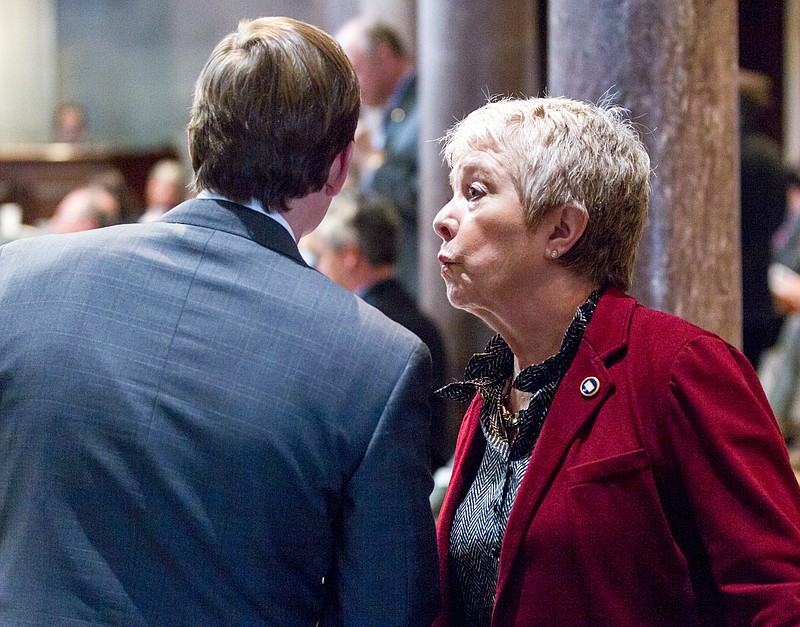NASHVILLE - A Tennessee bill requiring that women who obtain abortions be asked to choose whether the fetal remains should be buried or cremated moved through two major Republican-led Senate and House committees Wednesday amid heated debate.
Proponents said the legislation, which applies to elective abortions at clinics or physicians' offices, is intended to accord dignity to the "unborn child."
But critics charged it's intended to shame women already faced with a difficult decision while imposing new responsibilities on clinics.
Senate Bill 828 passed the Senate Judiciary Committee on a 7-2 party-line vote. It is being scheduled for a floor vote. House Bill 1182 was approved by the Health Committee on a voice vote.
In presenting the bill, Sen. Janice Bowling, R-Tullahoma, said the measure states that it "would be the responsibility of the mother of the aborted child or the abortion facility to provide at their expense a burial or cremation."
The woman could choose to refuse, and the clinic or a doctor's office would make the decision and would be responsible for costs.
Noting the bill doesn't restrict access to abortion, Bowling said "it only attempts to guarantee an acceptable level of respect for an aborted child."
Three women who said they had worked at abortion clinics in other states testified in favor of the bill, among them Annette Lancaster, who described having worked at an abortion clinic in Chapel Hill, North Carolina, without much training.
Lancaster described in graphic detail having to "piece together" fetal parts in a "petri dish" so that medical personnel could be certain all portions of a fetus had been removed.
"Several people accused me of being a sensationalist," Lancaster said, later adding "that's just a sampling."
Max Carwile, who works for Planned Parenthood of Tennessee and North Mississippi, told the panel "our government shouldn't be in the business of legislating whether to or how we should grieve."
Calling the bill unnecessary, Carwile said Planned Parenthood staff currently talk with patients "to answer all of their questions of how the fetal issue is handled."
Carwile said "it's incredibly clear this bill isn't about giving people seeking abortion care answers" but a "pure government overreach to dictate" to patients.
Senate Judiciary Committee Chairman Mike Bell, R-Riceville, objected to Carwile's use of terms such as tissue, saying, "I took great umbrage at the term medical tissue."
Sen. Katrina Robinson, D-Memphis, a registered nurse who serves on the panel, later charged "this bill shames a woman for seeking a legal abortion. There are no exceptions for real-world circumstances. There are no exceptions for religious customs. This is completely unnecessary for medical purposes."
Debate in the House Health Committee was sometimes testy as well.
"It's a baby. It's not medical waste, it's not fetal cells, it's not a clump, it's a baby," said Rep. Robin Smith, R-Hixson, a registered nurse, who thanked Rep. Tim Rudd, R-Murfreesboro, for bringing the legislation.
Contact Andy Sher at asher@timesfreepress.com or 615-255-0550. Follow on Twitter @AndySher1.
